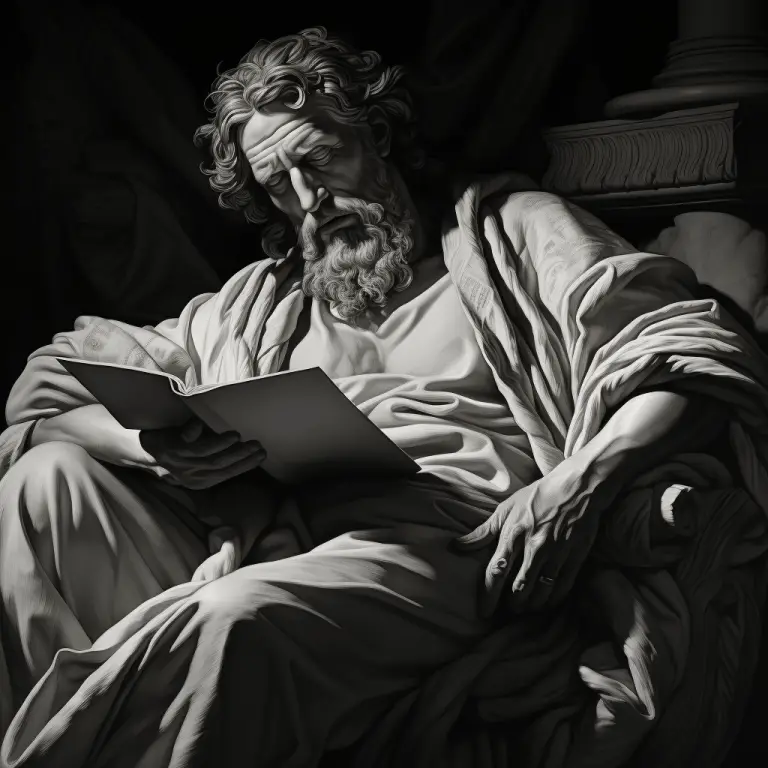What is being according to Plato? Plato’s metaphysics explores the ontological status of these Forms and their close connection to human nature. He argues that the human soul possesses inherent knowledge of these Forms from a previous existence. Through philosophical inquiry and cross-examination, Socrates explains that true knowledge and understanding can be obtained by recognizing these eternal Forms and aligning our actions with them.
What Is Being According to Plato?
According to Plato, the concept of “being” is a fundamental aspect of his philosophical inquiry. In his dialogues, Plato explores the nature of reality and the essence of existence. He delves into metaphysical problems, seeking to understand what it truly means for something to “be.”
Plato asserts that true being exists beyond the physical world we perceive with our senses. He introduces the theory of Forms or Ideas, which suggests that there are eternal and unchanging entities that serve as the ultimate reality behind our material world. These Forms represent perfect and abstract versions of things we encounter in our daily lives.
In Plato’s terms, these Forms have their own nature and ontological status separate from material things. For example, there is not just one form representing a round ball but many forms representing different aspects of roundness. The physical balls we observe in our world fall short in embodying this true nature.
Plato’s philosophy highlights a close connection between being and knowledge. He argues that true knowledge lies in understanding these timeless Forms rather than relying solely on sensory perceptions. Through philosophical inquiry and cross-examination, individuals can strive to grasp the true nature of things and attain deeper insights into reality.
Within Plato’s framework, he also discusses the concept of justice as an essential part of being. According to him, justice is not merely following societal rules but aligning oneself with the ideal Form of Justice itself. Similarly, other virtues are seen as specific manifestations or reflections of their corresponding Forms.
Furthermore, Plato contemplates human nature and explores how it relates to being. He suggests that every individual has a soul consisting of different parts: reason (associated with philosopher kings), spirit (representing courage), and appetite (related to desires). The pursuit of right conduct involves harmonizing these elements within oneself and attaining virtue.
Overall, Plato’s definition of being revolves around transcending the limitations imposed by the physical world and seeking knowledge of the eternal Forms that underlie true reality. It is through this philosophical journey that one can live a good life, achieve moral excellence, and ultimately approach the truth.
The Nature of Being in Plato’s Philosophy
Plato describes the nature of being by employing metaphysical concepts such as the theory of forms. According to this theory, each material thing we encounter in our daily lives is merely a flawed reflection or imitation (mimesis) of its corresponding form in an ideal realm. For example, while we may see many round balls in the physical world, there exists only one perfect form representing roundness itself.
This ontological status bestowed upon these forms highlights their elevated position above transient material objects. It implies that true being lies within these timeless and unchangeable entities rather than within perishable matter.
Plato’s philosophy also extends into political thought, where he contemplates the idea of philosopher kings ruling over society. According to him, these enlightened rulers possess a deep understanding of true forms and are best equipped to guide society toward the good life.
Forms and Being in Plato’s Theory
In Plato’s philosophy, the concept of “being” holds significant importance. According to Plato, being refers to the existence or reality of something. It encompasses the fundamental nature and essence of an entity. In his dialogues, Plato explores the nature of being through various lenses, delving into metaphysical problems and questioning the true nature of reality.
Central to Plato’s theory is his notion of Forms or Ideas. Plato asserts that these Forms are eternal and unchanging entities that exist independently from the physical world. They represent perfect and ideal versions of things found in our sensory experience. For example, there exists a Form or Idea of a round ball, which serves as the ultimate standard for all objects we perceive as round.
Plato’s teacher, Socrates, explains this concept through philosophical inquiry and cross-examination in many dialogues. He argues that true knowledge comes from grasping these timeless Forms rather than relying on our imperfect sensory experiences alone.
According to Plato, human beings have a close connection to these Forms through their souls. The human soul is believed to be immortal and preexistent before birth, containing traces of knowledge acquired from encountering the Forms in a previous existence.
Plato’s metaphysics posits that while material things may change and fall short in capturing true being, the Forms themselves remain constant and unchangeable. They serve as an ontological foundation for understanding concepts such as justice, virtue, truth, and beauty.
In Plato’s political philosophy, he introduces the idea of philosopher kings – individuals who possess deep insight into these eternal forms and are best suited to govern society with wisdom and virtue.
Plato speaks about specific virtues tied closely with different forms; for instance, justice is associated with one form while courage may be connected to another form altogether. By aligning oneself with these universal principles found in the realm of Ideas rather than mere societal conventions or personal desires, one can lead a good life and achieve true happiness.
Plato’s theory of Forms raises profound questions about the nature of reality, the relationship between the physical world and the realm of Ideas, and the role of philosophy in understanding truth. While his ideas have sparked extensive debate and criticism.

